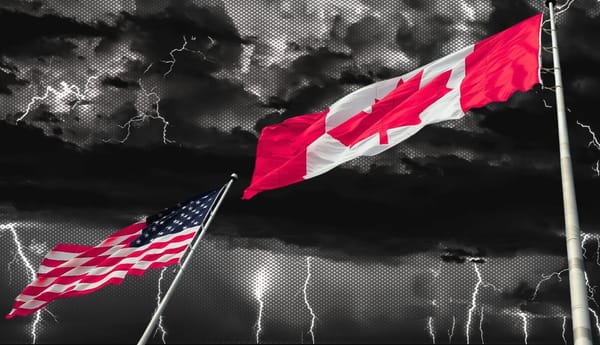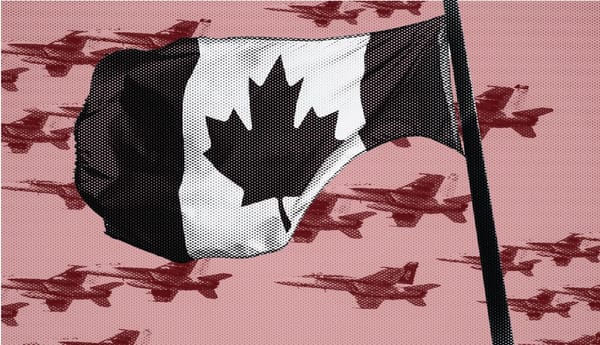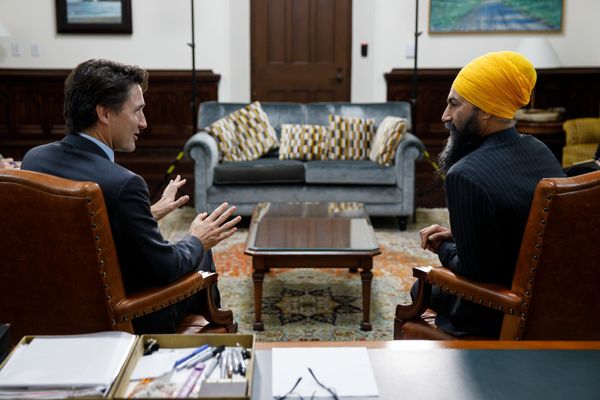In the span of just a few weeks, life as we’d previously known it has been turned upside down.
To limit the spread of COVID-19, widespread preventative measures have been enacted globally, ranging from school shutdowns in Quebec, to nationwide lockdowns in European countries such as Italy, France and Spain. The goal of these measures, across the board, is to make people stay inside and limit the spread of the virus, which threatens to overwhelm healthcare capacity.
As has happened following so many disasters in the past, this crisis has led to a rapid, spontaneous explosion of localized mutual aid initiatives. Young, low-risk, healthy people are bringing supplies to at-risk neighbours, organizing childcare and setting up sanitation infrastructure for homeless people. In the face of this unprecedented crisis, people are helping one another.
Disasters, though, can also bring out the worst. The people bringing groceries to elderly neighbours are contrasted with stories of people such as Manny Ranga and Violeta Perez, a “hustler” couple from Vancouver who made $100,000 by mass-purchasing disinfectant wipes from multiple Costco stores and reselling them online at massive price increases. Luckily for all of us, those like Ranga or Perez aren’t the majority.
But crises aren’t just about how individuals choose to respond to stress — they’re about systems. Perez and Ranga’s predatory actions were taken to price-gouge strangers online, with the cost of contributing to shortages of important goods in their own community. But their actions were not entirely their own: The couple acted according to the logic of our world, which encourages us to take every advantage possible for ourselves, including when it comes at the expense of those around us.
Disasters open up the fault lines of the societies in which they take place. Those of us most vulnerable during normal times continue to be so during crises. These, of course, aren’t normal times. The immediate future leaves us with two distinct paths, and we have to make our choice quickly.
In her 2007 book The Shock Doctrine, author Naomi Klein coined the term “disaster capitalism” to describe the ways the ruling class exploits disasters — natural, economic or otherwise — to advance their own interests. It’s a theoretical framework that helps us understand the mass school privatizations in New Orleans after Hurricane Katrina, the bailouts after the economic crisis in 2008 and the launch of the global War on Terror following 9/11.
In times of crisis, the ruling class attempts to pass a wide array of measures that had been on its agenda for a long time, but were considered too politically risky.
This is one of the roads we may choose to follow during this crisis. An inevitable, and serious, economic crash looms on the horizon, as a wide-scale economic slow-down spooks the owners of capital. In this context, the aftermath of the crisis may see unprecedented waves of punishing austerity, prolonged xenophobic border closures and further destabilization of the Global South.
But disasters don’t only open the window of possibility in one direction. Moments of panic, like the one in which we’re living, can also allow for previously-unthinkable liberatory politics to become both popular and urgent. This pandemic in particular shows us we’re only as safe as the worst-off among us.
Socialist theorist Antonio Gramsci, while locked inside a prison cell in Benito Mussolini’s fascist Italy, wrote in his Prison Notebooks that the ruling class maintains its power through cultural hegemony, by normalizing and naturalizing the relations that keep the power structure in place. Of course we need to pay rent, of course we need to work for wages. Any alternative is unthinkable. This, Gramsci says, is “common sense.”
In moments like this, common sense dissipates, making way for “good sense,” based on the feeling of solidarity with those facing the same struggles as ourselves. We suddenly see ourselves in our out-of-work neighbours struggling to pay rent, or the people living in the homeless encampment down the road.
This rapid shift in collective sentiment lays the foundation for what we could call “disaster socialism.”
What might a “disaster socialism” look like? We can start to understand the necessary steps by mapping the ways our economy forces us to take the actions that spread this virus.
For the nearly half of us who live paycheque to paycheque, the danger of a virus might seem more distant than the extremely familiar threat of destitution that comes with losing our jobs and missing the rent. For our non-status immigrant neighbours, the threat of being identified and deported hangs over trips to government-run services like hospitals. For the people trapped inside crowded prisons, including the racialized people disproportionately represented, access to healthcare is little more than a cruel joke.
In state reactions to the crisis, we’re already seeing things that were unthinkable just weeks ago become reality. Cities and states across the United States are enacting moratoriums on evictions. California is seizing hotels to house the homeless. Iran is releasing thousands of prisoners from the cages in which they were held. Spain is temporarily nationalizing all private hospitals. Measures to suspend payments on rent, mortgages, utilities and debt are suddenly part of the public conversation.
In Canada, we have yet to announce the types of relief for working people, migrants, homeless people or prisoners that the moment demands. Temporary eviction moratoriums have been announced in Ontario and Quebec, with the former’s premier planning to accelerate the speed of evictions once normalcy returns. In Quebec, workers who choose to self-quarantine because of symptoms, or returns from trips, will be provided with two to four weeks’ worth of pay.
These measures are helpful in the immediate term, but their duration fails to address the fact that this crisis shows no signs of slowing in the near future.
The federal government, for its part, has announced a large cash bailout that will provide relief to businesses and workers. Access to federal unemployment insurance has been sped up by a week, workers who are self-isolating will be provided with stipends and direct financial support will be given to individuals not covered by existing programs. Much of the budget, like the previous $10 billion dedicated to protecting “the economy and financial sector,” is aimed primarily at the owners of capital.
While these measures will provide needed short-term relief, their nature as cash injections means they continue to rely on the market as the main resource-distribution mechanism during this crisis.
As we face down the complete failure of the market to rationally distribute necessities, we need to be moving toward the decommodification of essentials such as food, medical care, utilities and housing. Without doing so, the coming economic crash, when the virus recedes and cash relief dries up, will be punishing.
We should begin to move in that direction by echoing the five demands circulating in the U.S.: free and universal health care regardless of immigration status, including any pharmaceuticals; suspension of nonessential work obligations without loss in access to necessities; moratorium on rent, mortgage and debt payments; freedom for all prisoners and migrant detainees; and guaranteed homes for all. Five demands, not one less.
Of course, these are measures socialists have always advocated, both on moral and practical grounds. Human beings all deserve a right to healthcare, housing and a decent standard of living. No one deserves to sleep on the street out of economic necessity. We all deserve the dignity denied to us by the coercive threat of homelessness or prison. The difference is that now, these measures are practically necessary to stem the tide of a pandemic.
Along with efforts to restructure our society toward a model capable of responding to this crisis, we also need to be working on the ground in our neighbourhoods to provide direct mutual aid to vulnerable members of our communities. This can look like many different things, from delivering groceries to defending community members from evictions. Along with their moral urgency, the networks we build will be essential to defend any structural changes once the crisis recedes and “normalcy” returns.
The way we respond to this pandemic will set the tone for the series of accelerating climate crises in the years to come. And while the stakes are higher than they’ve ever been, the fork in the road ahead leaves us with the same two choices as ever: socialism or barbarism.






